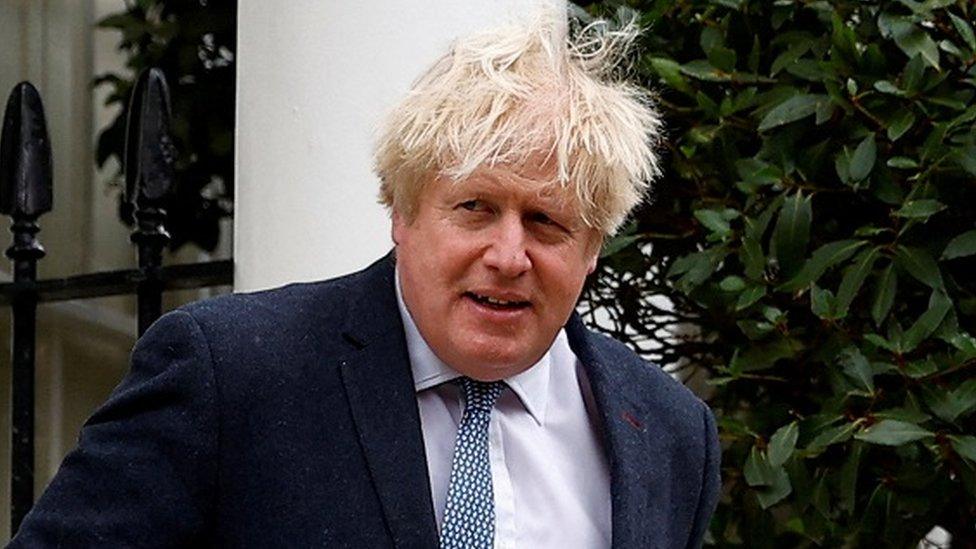Covid inquiry lawyer criticises government over evidence
- Published
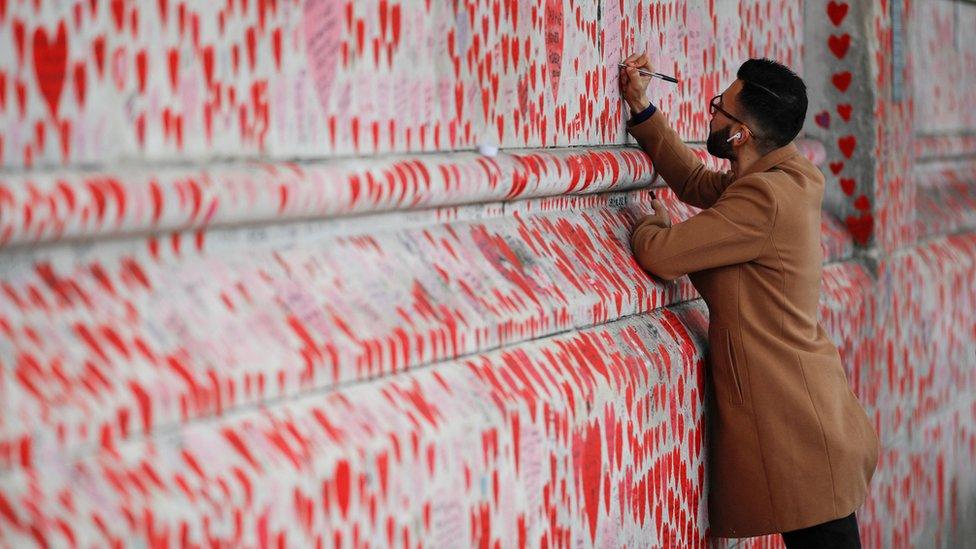
Problems with evidence provided to the Covid inquiry by some government departments could disrupt progress, the inquiry's lead lawyer has said.
Hugo Keith KC said many departments had responded under "demanding timescales".
But he raised concerns that some draft statements from witnesses contained "insufficient detail" and deadlines for providing information had been missed.
He also noted that some departments, particularly the Cabinet Office, had sought to redact documents.
The inquiry is currently locked in a legal battle with the Cabinet Office over whether unredacted messages between Boris Johnson and other ministers and officials during the pandemic, as well as his unredacted diary notes, should be handed to the inquiry.
The Cabinet Office has argued that some of the messages are "unambiguously irrelevant" to the inquiry, and include details of ministers and officials' private lives.
Baroness Hallett, who is leading the inquiry, has said it should be up to her to decide what is relevant.
During the hearing she also told the Cabinet Office's lawyer that everyone was "under pressure" adding: "The more delay there is, the greater the pressure on everybody."
The government has launched a legal challenge to the inquiry's request for unredacted messages, and Mr Keith confirmed the High Court was likely to hear the case on or shortly after 30 June.
Last week, Mr Johnson announced he would bypass the Cabinet Office and pass his unredacted WhatsApps directly to the inquiry.
Mr Keith said he was "grateful" to the former prime minister for his co-operation, and added that his team were planning to begin inspection of the messages later this week.
He said the team would compare the unredacted messages with the censored ones provided by the Cabinet Office - and hoped to be able to do the same with Mr Johnson's notebooks and diaries, items the Cabinet Office currently hold.
Asked if it would hand these documents back to Mr Johnson, the Cabinet Office's lawyer Nicholas Chapman said the department was "considering its position".
Security concerns raised in April 2021 led to Mr Johnson getting a new phone. Consequently, the WhatsApps in question contain messages going back only to May 2021 - more than a year into the pandemic.
Mr Keith said the inquiry had asked the Cabinet Office to "obtain the phone without delay, to confirm in writing the process by which it will be examined, and to give confirmation that it, like the diaries and the notebooks and the WhatsApps, will be accessed fully".
Mr Chapman said the department would be contacting Mr Johnson about his phone "as a matter of urgency".
Mr Keith said the Cabinet Office's stance "will not do. We are under very severe time constraints... they have ample time to make their position plain."
At his urging, inquiry chair Baroness Hallett gave the Cabinet Office until the end of the week to explain its positions on whether it would give Mr Johnson his notebooks and diaries back so he could hand them over to the inquiry, and for an update on his old phone.
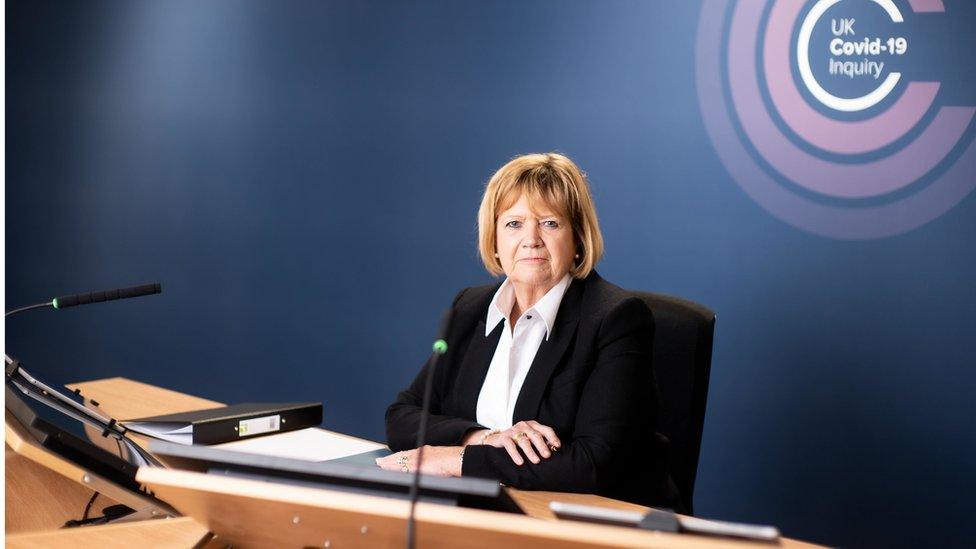
Retired judge Baroness Hallett is leading the inquiry into the UK's response to and impact of the coronavirus pandemic
Mr Keith also told the hearing that similar redaction issues had occurred over information on messaging app Google Spaces used by the Cabinet Office, and WhatsApps from two special advisers in the Foreign Office.
He added that the health department had provided "much fuller disclosure", including the WhatsApps of former Health Secretary Matt Hancock, "without any redactions at all for relevance" - and the Foreign Office and Cabinet Office should "pay close regard" to its approach.
Asked about the lawyer's comments, the prime minister's spokesman said Downing Street remained "hopeful and willing to agree together the best way forward".
Thalia Maragh, a lawyer representing families bereaved by Covid, said it "beggars belief" that the focus of the inquiry had been "diverted by the Cabinet Office's legal challenge".
"The families are deeply disappointed that the Cabinet Office is persisting with its legal challenge to your ruling, which the families see as a further step to interfere in the inquiry's independence and to control the material it receives, and what it can and cannot see."
Related topics
- Published4 June 2023
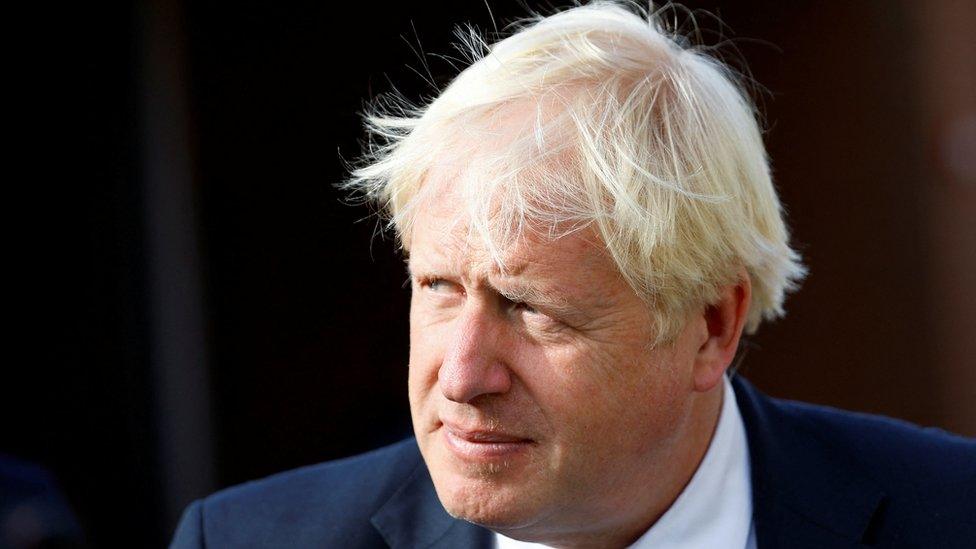
- Published2 June 2023
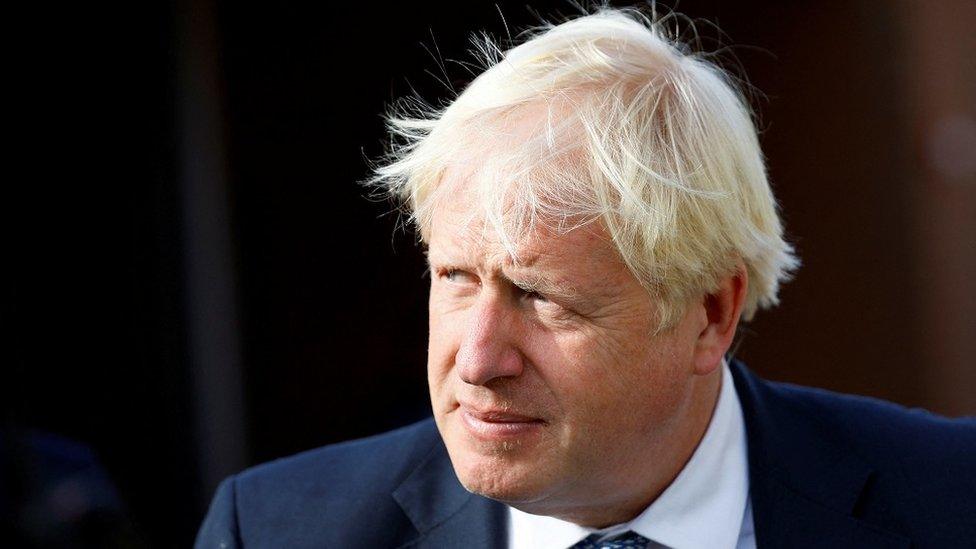
- Published2 June 2023
